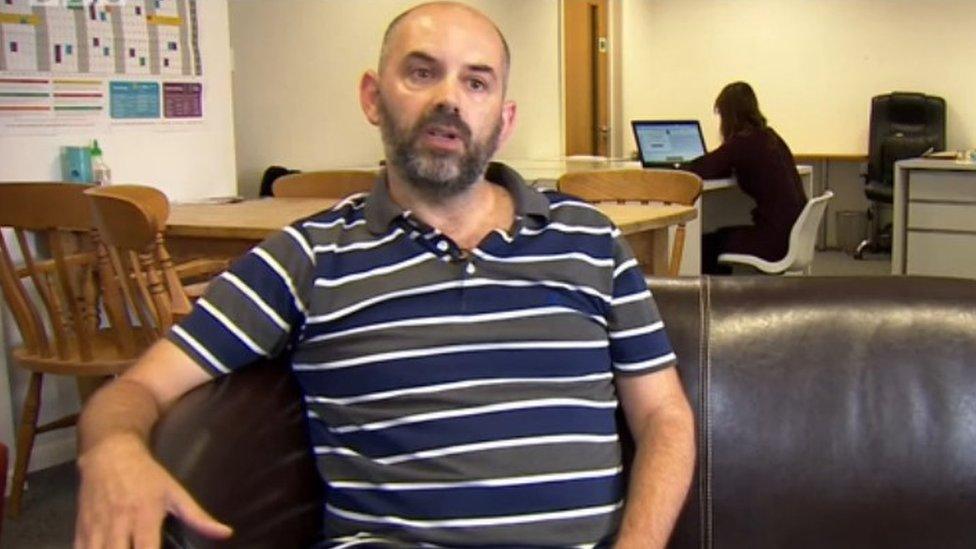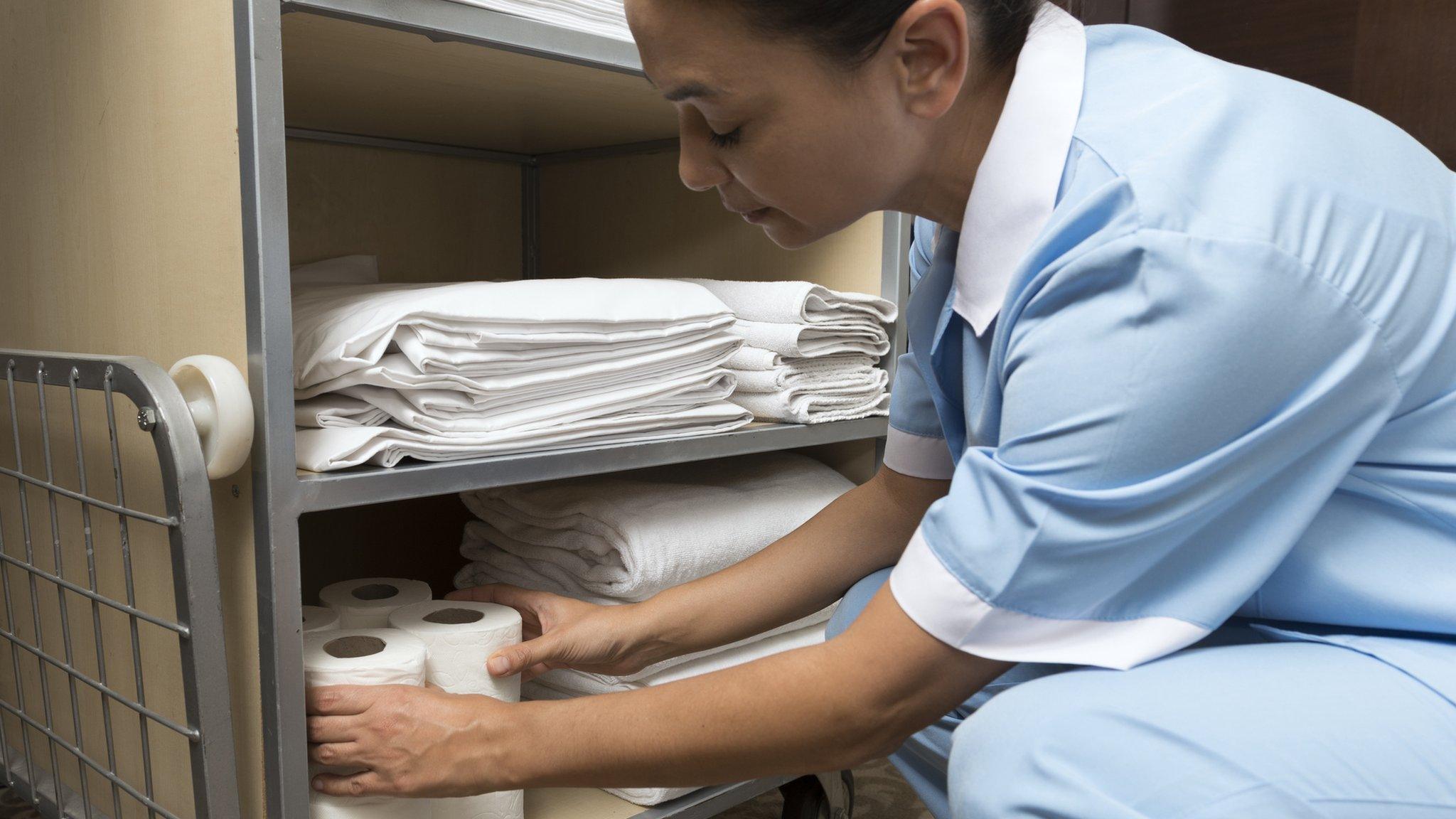Unions call for four-day working week
- Published
- comments
"I don't see why four days is not doable for most people"
A four-day working week will be possible this century if businesses are forced to share the benefits of new technology with their workforce.
That's the claim from the TUC, which is using its annual conference to call on the government to take action to help people work less but get paid the same.
Artificial intelligence, robotics and automation could provide a £200bn UK economic boost in the next decade.
At one Welsh firm staff already get a full salary for four days work.
'Productive'
Mark Hooper, founder of Cardiff-based IndyCube, said the transition to this new working arrangement over the last 18 months had not always been easy.
"We felt we had an opportunity to prove something, that you can be as productive in four days as five, and it has been worth it," he said.
Now the company is outputting more and expanding outside of Wales.
His colleague Russ Todd spreads his time out to help with school runs and family time.

Russ Todd says the arrangement gives him more flexibility with his time
"My father would work long hours. He was up before I was up and he was home after I went to bed," he said. "It is important to be there. It matters."
Employee Mari Dunning has used some of her extra time to get a collection of poetry published, amongst more menial tasks.
Or if you use the extra day to get the housework done, "you've then got your weekend wide open", she said.
"I don't see why four days is not doable for most people," she added.
But for most British workers the trend is going in the other direction.
'Better working lives'
Some 1.4 million people now work a full seven days a week in the UK, according to the TUC, and 51% of people they surveyed said they feared the benefits of new technology would go to company managers and shareholders.
A report this January from Centre for Cities found that 3.6m UK jobs could be replaced by machines by 2030.
The TUC's general secretary Frances O'Grady highlighted that unions had fought for two-day weekends and limits on long hours - and that this is their next challenge.

Frances O'Grady has led the TUC since 2013
"We know that some people are pessimistic about whether technology will make their lives better but technology could be a force for good, we can also make everyone's working lives better and richer," she explained.
"It doesn't have to be about surveillance and exploitation. This could be about creating more satisfying work."
But that may not be easy.
'Protecting jobs'
The Communication and Workers Union just took on that fight - to have the benefits of automation evenly shared - at the Royal Mail.
When the postal service invested in new sorting machines - thus cutting down on the amount of time workers were needed to sort out packages - it wanted the staff to work extended delivery rounds instead.

New tech disrupted the working week for staff at Royal Mail
Terry Pullinger was the lead union rep on the dispute that took two years to resolve.
"Our objective was to work towards a 35-hour week," he said.
"Crucial to us was to protect as many jobs as possible with the technology that is coming in, which is taking out a lot of the work that our members are doing. And fortunately we ended up in a situation where the employer agreed with us."
He added: "People are finding that they're being pushed to work harder, [but] how much can people take?"
- Published27 July 2018

- Published12 May 2018

- Published2 April 2018
